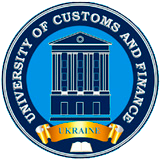MANAGEMENT OF INTERMODAL AND MULTIMODAL TRANSPORTATION SYSTEMS
Abstract
The transport system of economy in the context of globalization is an important component of innovation and technological development of the country and the world. In a single whole transport system security, economically, technologically and environmentally combines various functional components. This indicates the multidimensionality of the problems of transport systems. The influence of Russian military aggression, challenges for freight and passenger transportation in the conditions of war for the logistics processes of Ukrainian enterprises is analyzed. The strategies that can reduce the impact of military conflict are considered to ensure the continuity of supply.The transition of society to a new technical and economic paradigm on the background of a significant role is influenced by the time category. Breakthrough technological solutions in the direction of intermodality, high-speed modes of transport, MAGLV, high-speed highways will contribute to the formation of a new integrated transport system in the world. Therefore, the high-speed economy becomes the prerogative of modernization. A dramatic increase in the contribution of transport systems can be achieved by increasing the capacity of transport systems, intermodality, digital technologies, optimization, speed increasing. The processes of internationalization of transport systems are reflected in the formation of a fundamentally new organization of cargo flows.Intermodal transportation provides reduction of delivery time. Accurate planning, coordinated work of participants in the logistics chain and minimization of overloads generate transport and logistics advantages.The mathematical model of the problem of routing intermodal transportation in the discrete space is proposed. The task of forming optimal routes can be formulated as the problem of covering a special graph with chains of a given structure. As a criterion is offered: minimizing costs is a minimum amount of vehicles. In addition, delivery timing cannot exceed the specified values. The above model belongs to the class of NP-complex problems.
References
2. Special report: Intermodal freight transport EU still far from getting freight off the road: European Court of Auditors. 2023, № 08. URL: https://surl.lu/pbgiku
3. Рік війни: як конфлікт в Україні вплинув на транспортний сектор Європи? 2023, URL: https://surli.cc/ztnffq
4. European Commission. Sustainable and Smart Mobility Strategy – putting European transport on track for the future. 2020. Brussels. European Commission. COM (2020) 789 final. URL: https://surl.lt/udvvqt
5. Відбудова України: принципи та політика: Центр досліджень економічної політики (CEPR). 2022. URL: https://cepr.org/system/files/2022-12/reconstruction%20book_Ukrainian_0.pdf.
6. Бєлашов Є. Міжнародні транспортні проекти як стратегічний чинник розвитку залізничного транспорту. Центр економічних і соціальних досліджень. 2024. URL: https://surl.li/rtcmbu
7. Ларка Л. С. Цифрові аспекти підвищення результативності маркетингової діяльності підприємства у процесі відбудови економіки України. Електронний журнал «Ефективна економіка». 2024. URL: https://academy-vision.org/index.php/av/article/view/1060/940.
8. Мірзаєв Т. Р., Білобородько О. І. Методика вибору алгоритму для розв’язання задачі маршрутизації транспортних засобів. Актуальні проблеми автоматизації та інформаційних технологій. Том 28. 2024. С. 205-212. DOI: http://dx.doi.org/10.15421/432419.
9. Головіна О. Сучасні технології в управлінні транспортною логістикою. International Science Journal of Management, Economics & Finance. 2(3). С. 35-42. 2023. DOI: https://doi.org/10.46299/j.isjmef.20230203.04.
10. Чебанова О. П., Волохов В. А. Використання технологій машинного навчання для оптимізації логістики. Вісник економіки транспорту і промисловості. № 83. 2023. С. 278-283. URL: http://nbuv.gov.ua/UJRN/Vetp_2023_83_33.
11. Oglih V, Shapovalov A. Innovative development of the transport automobile system of Ukraine: problems and prospects. Monograph 28. Katowice. Katowice: Katowice School of Technology. Poland. 2019. P. 193-200. URL: URL: www.wst.com.pl.
12. Oglih V, Shapovalov A. Digital transformation in the transport industry: a test and new horizons for business. Monograph 42. Katowice. Katowice: Publishing House of Katowice School of Technology. Poland. 2020. P. 286-298. URL: URL: www.wst.com.pl.

 ISSN
ISSN 




